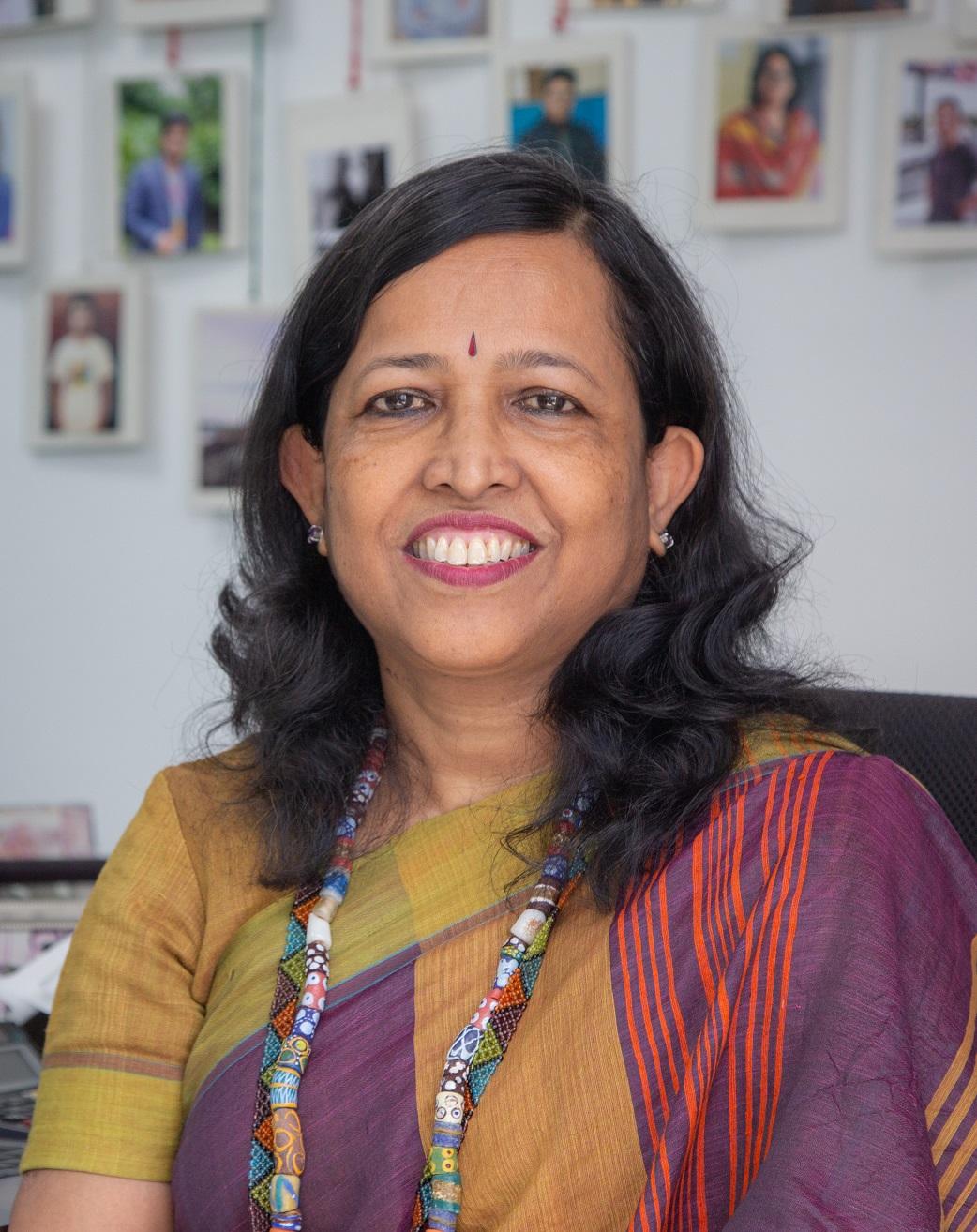Trained as a physician in her native Bangladesh, Malabika Sarker served the maternal needs of women in a rural village early in her career. Soon the urge to improve health through systems-level change pulled her to the field of implementation science and public health. “It doesn't matter how good you are as a doctor,” she told us. “There are other factors with influence.” Today, an internationally known expert in public health implementation science, Sarker focuses on those other factors.
As professor of the practice of behavioral and social sciences in the School of Public Health, Sarker works toward closing the gap between the evidence-based practices that we know improve health, and the methods and tactics that are actually used in health care practice.
Through research and teaching, she investigates the forces that slow or stop uptake of proven health interventions and those that foster evidence based practices. We spoke to Sarker about her global career, the importance of community and advocacy, and why she thinks the Brown School of Public Health is well positioned for the 21st century.

How did you come to the field of public health?
I grew up in Bangladesh, where I studied medicine. So I'm a physician by training, but I did not like my clinical life. So I switched to public health, which I loved. In the beginning of my career, I was working in an NGO, non-government organization, in a rural village as a community-based physician and it was so much fun. I learned so much. That's my foundation as a public health practitioner.
And then later I came to the USA as a graduate student, then I went to Heidelberg, Germany for my doctorate, and that started a new chapter. I did my Ph.D. in Burkina Faso, which is a West African country. After that I joined the University of Heidelberg as a faculty member, and then I went back to Bangladesh in 2011. I was there for 12 years at BRAC University, teaching, conducting research and mentoring.
You had an experience when you were very young that motivated your interest in women’s health. Would you tell us about that?
I grew up in Bangladesh in a small town and I come from a very middle class family. My parents were teachers. When I was small, I went to visit my grandmother in a village, and for the first time, I heard that there was a young girl, 14 or 15 years old, who had died during the delivery of her child; and it kind of shocked me.
I got married at 17, after high school—arranged marriage—and I went on to medical school, which I didn't want. I wanted to study physics or math, but my family wanted me to go to med school. I had my son when I was in my second year of medical school.
After finishing med school, as a young mother, I thought I would be an OB-GYN because of my experience witnessing maternal mortality in Bangladesh, where maternal death is very high. But I was kind of struggling with my clinical life, emotionally. It doesn't matter how good you are as a doctor, there are other factors with influence, like buying medicine, complying with the treatment or going to a health facility for a delivery.
At that time, a friend who was in public health told me about a non-government organization called BRAC, working in the northern part of Bangladesh—this rural village. They received a huge grant from a British donor and they wanted to start a community-based maternal health program and family planning.
My relationship was not going very well with my husband, so my seven-year-old son and I went to the village and I started working there. We stayed there four years, working in the community, on family planning, pregnancy care, delivery. I enjoyed it very much.